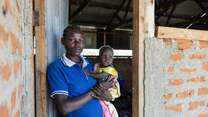The COVID-19 pandemic has continued to take a devastating toll on women and girls’ safety in already complex humanitarian emergencies. Following on from What Happened?, this report surfaces evidence of increased risk of gender-based violence (GBV), as well as how GBV interventions have been impacted, drawing on interviews with those working on the front lines of prevention and response across three contexts: Cameroon, South Sudan, and Yemen.
In this report, the International Rescue Committee highlights various challenges that women’s rights organisations (WROs) face in accessing funding and participating in humanitarian decision-making, reflecting missed opportunities for accelerating localisation during the COVID-19 pandemic. The report also asks Where is the money?, tracking funding to GBV interventions across three contexts, evidencing the ways in which GBV interventions remain underfunded, and shining a light on the need to prioritise GBV interventions and meaningfully engage WROs in these efforts.
Importantly, the findings compel humanitarian actors to ask the question, “Why not local?” The IRC calls for system reform to achieve a more equitable distribution of power, including with feminist organisations and WROs, who are frontline responders providing lifesaving services to crisis-affected women and girls in their contexts. Finally, the report makes specific recommendations calling on humanitarian actors to fulfil their commitments to increasing the prioritisation of GBV interventions in humanitarian crises and the meaningful engagement of women’s rights organisations.


